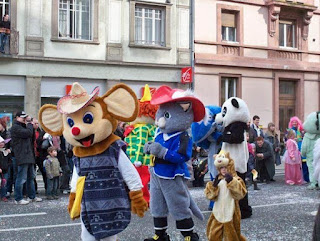Un film qui rechauffe le coeur
A 'feel good film' - un film qui rechauffe le coeur - literally, a film which warms the heart or we would say, which warms the cockles of your heart. Why on earth we have to say 'cockles' and what exactly they are is a mystery to me.
Talking of films...... Monday 26th March is Film Night chez Julian & Judith.
You have a choice:
Watched this one last night. Very clever and complex plot. Keeps you guessing the whole time . Click for information
Powerful, well-crafted plot and beautifully acted drama. More info.
Perfect comic timing and belly-achingly funny throughout. More info.
À vous de choisir!
Please note: the above are my opinions and not that of a film critic. However, I think Claudia Winkelman does have some serious competition.
Les Devoirs
Is the wordsearch doing your head in? Fear not, it is difficult and not compiled by me, I hasten to add. Although there are 43 verbs in total (I have found 36 so far), you are doing well if you find 10 in each category. Hint - Look for the ones which take être first, as you know what they are and it helps to know what you are looking for. Just do as much as you can and don't get stressed by it. I am more interested to see if you know which category they fit into.






































.JPG)

.jpg)




